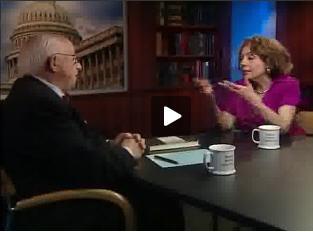HuffPost Book of the Month!
Shadow Elite is Arianna's January Book Club selection.
QUOTED IN...
• Janet Elise Johnson, "Out with the Old, in with the Old: Lessons from Iceland's brush with the Panama Papers" Boston Review, April 21, 2016.
"In her 2009 book Shadow Elite, Janine Wedel describes a new kind of flexible network at play, not just in post-communist contexts such as Russia, but also in the United States, where only one person has so far been named in the Panama Papers. Wedel finds that, instead of engaging in illegal activities, elites have been changing the rules to suit their goals, relying in part on the revolving door between government and the private sector."
• Reihan Salam, "What Bill Clinton's Right-Hand Man Tells Us About the New American Power Elite" National Review, September 23, 2013.
"A flexian, as Wedel defines the term, is a creature peculiar to our moment in history: a mover and shaker who serves multiple, overlapping roles with smiling finesse—business consultant, think tank fellow, government adviser. He is someone who "glides in and around the organizations that enlist his services," Wedel writes in her book Shadow Elite: How the World's New Power Brokers Undermine Democracy, Government, and the Free Market. "It is not just his time that is divided. His loyalties, too, are often flexible. Even the short-term consultant doing one project at a time cannot afford to owe too much allegiance to the company or government agency. Such individuals are in these organizations (some of the time anyway), but they are seldom of them.""
• Christopher Hayes, "Why Elites Fail" The Nation, June 25, 2012.
"In her book Shadow Elite, about the new global ruling class, Janine Wedel recalls visiting Eastern Europe after the fall of the Berlin Wall and finding the elites she met there—those at the center of building the new capitalist societies—toting an array of business cards that represented their various roles: one for their job as a member of parliament, another for the start-up business they were running (which was making its money off government contracts), and yet another for the NGO on the board of which they sat. Wedel writes that those "who adapted to the new environment with the most agility and creativity, who tried out novel ways of operating and got away with them, and sometimes were the most ethically challenged, were most rewarded with influence.""
• Danielle Douglas, "Washington Research Group has new owner" The Washington Post (Capital Business), November 27, 2011.
"There's a growing need for financial service firms to have the inside track about goings-on in government because small policy shifts can have big consequences and state and private power are increasingly intertwined,” said Janine R. Wedel, a professor in the School of Public Policy at George Mason University and author of a new book on the subject, Shadow Elite."
• Tom Vanden Brook, "Pentagon revises military mentor rules" USA Today, August 9, 2010.
"The fact that they want to keep that information off the public record raises questions...what other masters are they serving and why can't we know who they are?"
• Mark Coddington, "This Week in Review: WikiLeaks' new journalism order, a paywall's purpose, and a future for Flipboard" Nieman Journalism Lab at Harvard, July 30, 2010.
"In a smart Huffington Post analysis of that issue, Janine Wedel and Linda Keenan presented this new type of news organization as a natural consequence of the new cultural architecture (the "adhocracy," as they call it) of the web: "These technologies lend themselves to new forms of power and influence that are neither bureaucratic nor centralized in traditional ways, nor are they generally responsive to traditional means of accountability.""
• Alexis Madrigal, "Neologism Watch: Adhocracy" The Atlantic, July 30, 2010.
"In a fascinating analysis of the release of the Afghanistan war logs, George Mason policy wonk Janine Wedel and journalist Linda Keenan argue that when traditional institutions break down, a new breed of power broker -- exemplified by WikiLeaks -- takes over."
• "An Urge to Lead", The New York Times business section, March 28, 2010, features business leader Diane Sanchez and this profile:
Diane Sanchez
Chief executive, Telefónica USA, Miami
AGE 55
RECENTLY READ
"The Shadow Elite" by Janine Wedel
FAVORITE VACATION SPOT
Italy
• Stephen M. Walt, "On 'conspiracy theories'" Foreign Policy, March 26, 2010.
"In her new book Shadow Elite, social anthropologist Janine Wedel offers a better way to think about the phenomenon of private political collusion....The growing prominence of these "shadow elites" may be undermining the accountability that is essential to a healthy democracy."
• Ray Locker and Ken Dilanian, "Pentagon panel has contractor contacts" USA Today, March 1, 2010.
"That's not sufficient, said Janine Wedel, a George Mason University professor and author of a book on government contracting. "It's the ultimate irony when an entity ostensibly set up to provide impartial oversight is in fact rigged to be much less impartial than what it is supposed to be overseeing," she said."
• August Cole, "Blackwater Dismissal Risks Hurting Iraq Relations" The Wall Street Journal, Jan. 2, 2010.
"Blackwater highlights the chasm that developed in the Clinton and Bush years between contractors and the ability of our government to serve the national interest," said Janine Wedel, a professor at George Mason University and a fellow at the New America Foundation, a think tank in Washington."
• Sebastian Jones, "The Lobbying-Media Complex." The Nation, Feb. 11, 2010. (Also, in the March 1, 2010 edition of The Nation.)
"Janine Wedel, an anthropologist in the School of Public Policy at George Mason University and author of the new book Shadow Elite, told me in a recent interview that while these influence peddlers are not necessarily unethical, they "elude accountability to governments, shareholders and voters--and threaten democracy. When there's a whole host of pundits on the airwaves touting the same agenda at the same time, you get a cumulative effect that shapes public opinion toward their agenda," she said."
• Tom Vanden Brook, Ken Dilanian and Ray Locker, "Retired military officers cash in as well-paid consultants" USA Today, Nov. 17, 2009.
"This setup invites abuse," says Janine Wedel, a George Mason University public policy professor and author of a forthcoming book on government contracting. "Everyone in this story is fat and happy. Everyone, of course, except the public, which has virtually no way of knowing what's going on, much less holding these guys to account."
• Senator Fritz Hollings, "The Deficit Commission and its Chances of Working." Huffington Post, May 21, 2010.
"Janine Wedel cites in The Shadow Elite that three of four employees in the Federal work force work for government contractors, not directly for the government."
• Fred Schulte and Emma Schwartz, "Daschle Had Public And Private Role In Push For Digital Health Records." Huffington Post, Dec. 15, 2009.
"The public has no way to find out if politically connected people who are neither officials nor registered lobbyists are influencing policy decisions, said Janine Wedel, a professor in the School of Public Policy at George Mason University and author of the book, Shadow Elite, How The World's New Power Brokers Undermine Democracy, Government, and the Free Market. This is the way many top influencers operate. They play mutually influencing roles that are not fully disclosed or transparent," Wedel said."
• Zach Carter, "Weekly Audit: Saying 'no' to corporate America." Huffington Post, Nov. 17, 2009.
"In fact, as Janine Wedel observes for Salon, the U.S. economic system is starting to look an awful lot like the clannish systems of government that looted Eastern European countries in the early 1990s. Today, the public good takes a backseat to the narrow interests of powerful corporations....The intertwined coterie of financial and policy deciders in the United States is creating not only the financial architecture of the future, backed by the power and billions of the state, but, more generally, new relationships between the bureaucracy and the market," Wedel writes."
• Allen McDuffee, "Think tank: Neocons' influence remains strong under Obama." The Raw Story, June 9, 2010.
"Perhaps more important [to the success of the neoconservatives] than the institutions and financial support is the modus operandi of the neoconservatives, according to Janine Wedel... A small subset of neocons, a 'neocon core' has been working together for more than 30 years 'to remake American foreign policy according to their own vision.'"
• Arianna Huffington writes on Twitter, Dec. 1, 2009.
"Janine Wedel author of Shadow Elite meeting in our DC office with our Huffpost team. Great follow up reporting ideas."









